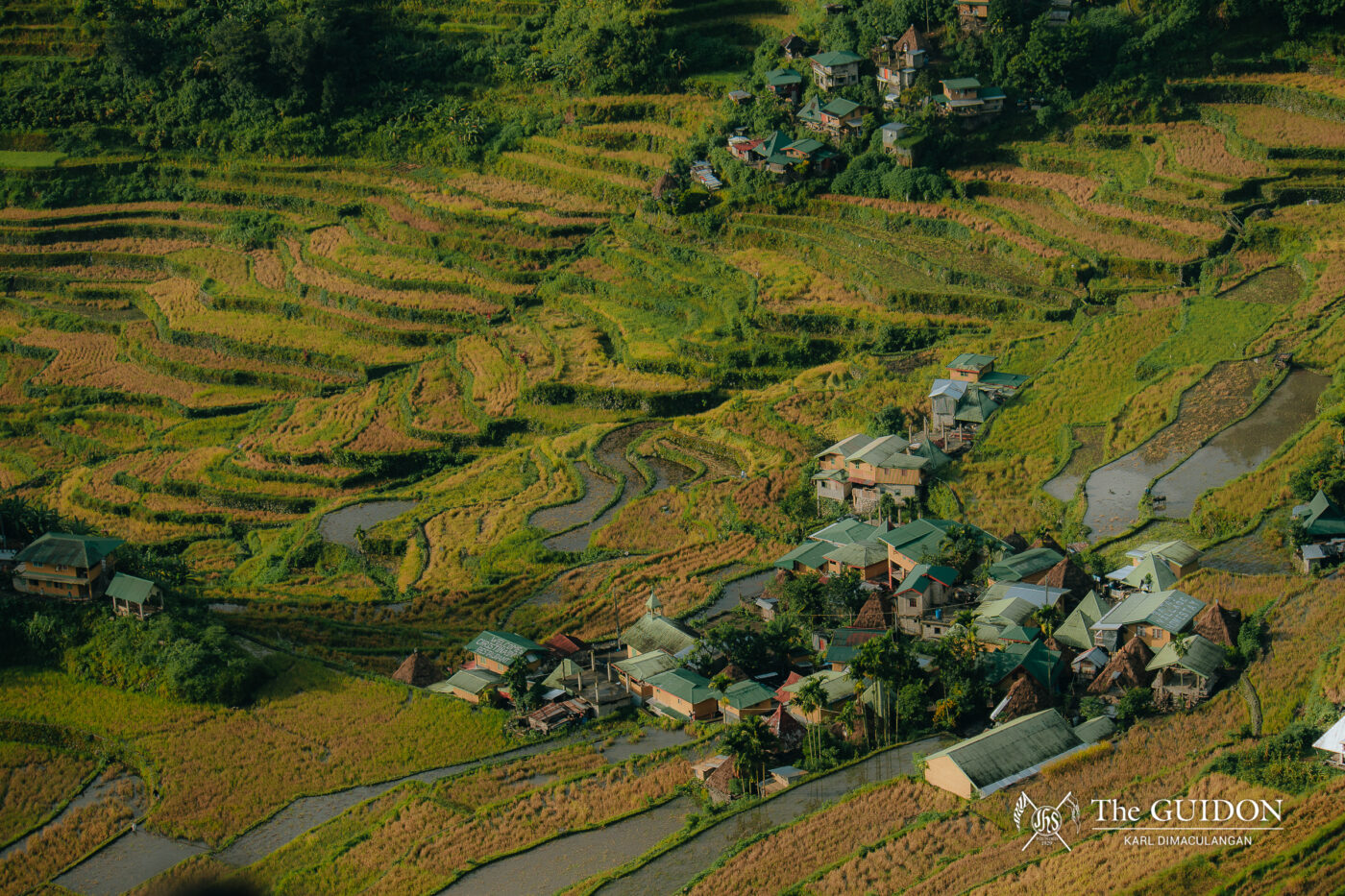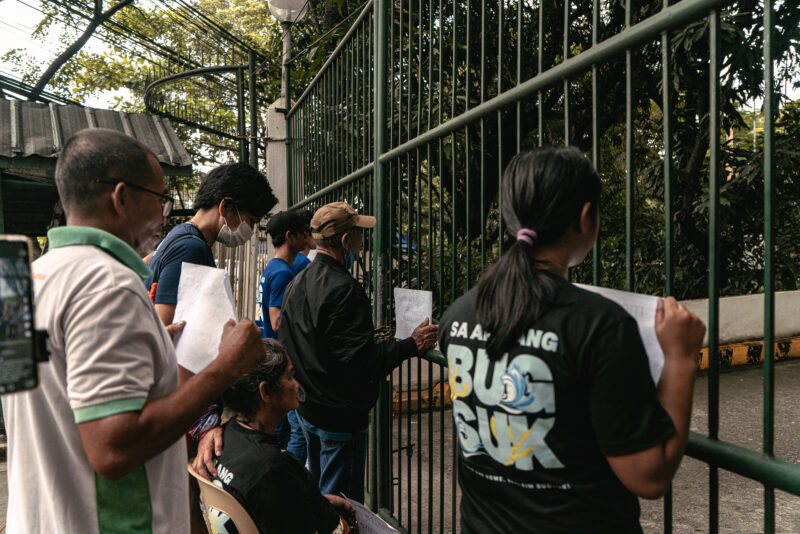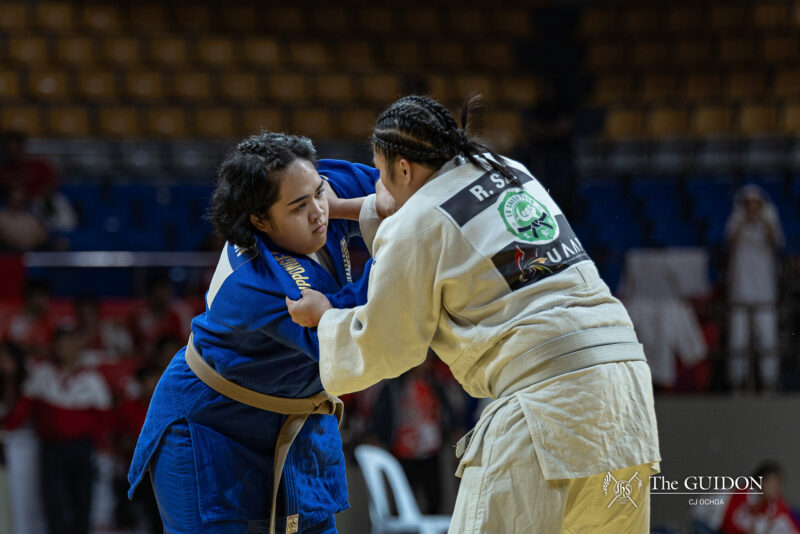Never having experienced Martial Law, people like JB relive and experience the narratives of the past as parts of their complex and ever-evolving identity.
BLOOD IS very important in the Cordilleras. It represents where one hails from and, in turn, how one is connected to the land.
Jamesun “JB” Wacnang Bejarin (AB POS-MPM ‘23) is born from a mix of Kalinga, Ifugao, Abra, and Ilocano descent. He is part of the Tulgao subtribe in Kalinga but has lived in Metro Manila his whole life. However, throughout his upbringing, his parents and grandparents have passed down the Cordilleran identity, as well as the fragments of the broken past that come with it.
In studying the relationship between identities and narratives, Raymon D. Ritumban, MA is an English instructor from Ateneo. His Masters in Literary and Cultural Studies has helped him understand the multitude of narratives and the intergenerational effects that have followed after Martial Law.
Whether through the academe or informal oration, both have lived vicariously and hauntingly through the experiences of the people that have endured before them.
Complex Cordilleran identity
At the height of the Marcos regime, economic development was prioritized at the expense of indigenous peoples and their ancestral land. A notable example of this was the proposed Chico River Dam Project in 1974. The National Power Corporation (NPC) planned to build a dam that stretched along Kalinga, Apayao, and Mountain Province, affecting thousands of indigenous peoples’ ancestral land and burial sites.
Despite historical tribal wars, the people of the mountains constructed the peace pact of Bodong to unite against the NPC’s attempts at the project. In the face of multiple attempts at bribery, harassment, and coercion, the Cordillerans stood strong.
Leading the multi-group opposition, Macli-ing Dulag is a tribal chief from the subtribe Butbut. He and other elders among the area were tasked to maintain the way of life in Kalinga, while simultaneously defending their land against the government. However, on the night of April 24, 1980, he was murdered by soldiers in his own home. His death sparked a national uproar which led to the World Bank’s withdrawal in funding the project.
Fast-forward to today, the Cordilleran people, as seen from their history, are a people of community and principle. In order to live a good life, one must follow three interconnected values—bain, paniyaw and ngilin—since these tenets are essential to the Cordilleran identity.
In English, bain translates to shame, not just for one’s self but also for one’s tribe, clan, and bloodline. With every action taken, one takes into account that they must not bring shame upon their family.
Meanwhile, ngilin refers to the concept of stewardship to the environment and to others around them. The people of the mountains view the environment as a land they do not own. It is merely passed down from one generation to another.
When one lives in accordance with bain and ngilin, they are able to live righteously through paniyaw, which is one’s relationship with a higher being.
These values find their way into the bustling city of Makati where Bejarin carries the remaining bits close to his heart. From being a young protester to an aspiring lawyer, Bejarin carries with him the same fervor for activism his ancestors had decades ago.
Throughout his time in Manila, Bejarin notices drastic differences in values. Pointing out the individualism in the metro, he wishes for a more communal and consultative environment, reminiscent of his home in the Cordilleras.
As such, Bejarin hopes that Filipino society rethinks the set of values it places importance in the present. “We have a lot to learn from the indigenous peoples not only in the Cordilleras, but across the country. […] How they take care of their resources, of the environment, how they view the next generation, and the importance of the bloodline and preserving life,” he shares.
Bejarin seeks to explain that those values are what is missing in Metro Manila. “That’s something we take for granted now, especially with technology, and that affects how we treat life just because of convenience,” he says.
Decentering Manila
Just as the virtues of bain, ngilin and paniyaw are passed down, the shared Filipino bloodline compels fellow countrymen to commemorate the experiences of those that stood before them. Part of this call means to honor all kinds of Filipino narratives.
In an effort to expand the Martial Law narrative, Ritumban emphasizes to his students that there are events during the regime that happened outside Manila. “If we want to have a more inclusive commemoration, it is necessary to remember the narratives from the provinces,” he asserts.
Ritumban cites that the experiences of minorities from the geographic peripheries became most vulnerable to being forgotten. He stresses that “the erasure of memory is facilitated by ‘defensive and complicit forgetting.’”
In particular, he cites the exclusion of the EDSA anniversary from the 2024 holiday calendar as an intergenerational effect of Martial Law. In his paper, mnemocide is the act of killing a memory, which is done “through erasing traces of the past that could preserve memory.”
In the case of the Cordilleras, the question of autonomy remains a multi-faceted discussion. After events such as the Agno River Basin Development Project and the failed Chico River Dam Project, the desire for independent governance in the region was ignited.
Eventually, persistent efforts toward autonomy prompted the establishment of the Cordillera Administrative Region (CAR) on July 15, 1987 through Executive Order No. 220 by the late President Corazon Aquino.
The provinces of Abra, Apayao, Benguet, Ifugao, Kalinga, Mountain Province, and the chartered City of Baguio were enabled to form an autonomous region. However, efforts for full autonomy have fallen short, following the 1990 and 1998 plebiscite, which did not favor the formation of an autonomous region.
While debates on CAR’s full autonomy remain unresolved, the indispensable narratives of indigenous peoples portray a complex and nuanced picture of Martial Law with prevailing Cordilleran issues.
As such, conflicts over development, indigenous peoples, and environmental concerns reflect the Filipino experience as multi-faceted stories, perspectives, and identities. “When we talk about the Filipino identity, it’s not centered on any part of the country. It should not.” Bejarin states.
Does it ever get old?
Commemorating Martial Law never gets old for Bejarin because “it becomes more meaningful […] the more time has passed.”
“Wala naman ako ‘doon, pero (I didn’t experience Martial Law, but) I am where I am because those people fought for my future,” he reflectively shares.
Evidently, a major part of his sense of purpose is drawn from his heritage. The narratives of Bejarin’s ancestors also contribute to his complex and ever-evolving identity as he continues to learn more about his ancestry.
Given the complexity of provincial narratives like those of the Cordillerans, preserving their memories is a form of commemoration, respect, and inclusion. Martial Law and its multiple intricacies should be no exception from this practice. In embracing the vastness of Filipino experiences, Bejarin poses a crucial question: “How much of our actions contribute to the aspirations of the people before us?”
Ultimately, the richness of the Filipino identity is shaped not only by the narratives of our ancestors but also by the dreams of today’s youth and future generations.







